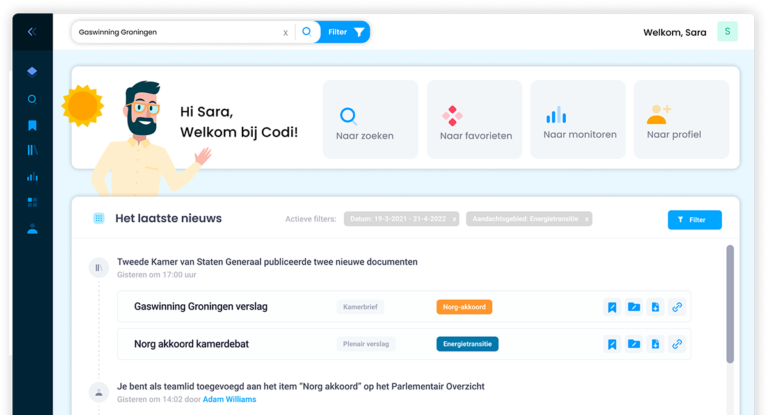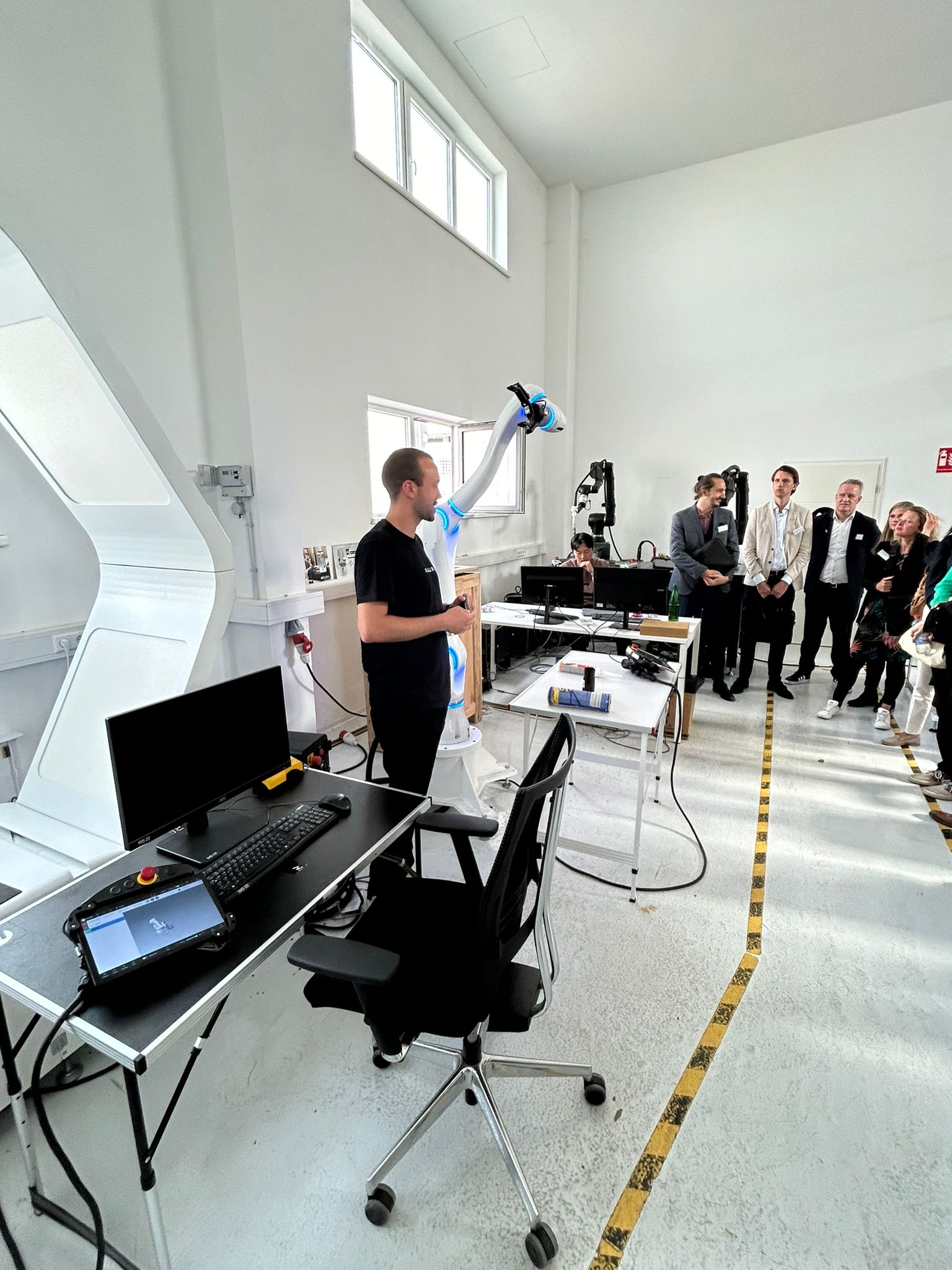Often, answers to Parliamentary Questions are derived from information contained in other political documents, such as Parliamentary Letters, previously answered Parliamentary Questions, reports, debates, and more.
Civil servants face various challenges:
• The workload is high and the time to respond is short.
• Quality standards are very demanding.
• Much time is spent searching for information in various databases.
• The required information is frequently embedded within lengthy, formal text documents.
Usage of Artificial Intelligence
Codi, the virtual policy assistant, is an AI specialized in governmental information and politics. Codi is linked to dozens of official government sources and uses Artificial Intelligence to transform unstructured data into valuable and insightful information. Codi dissects, structures, and enriches text data using Machine Learning (advanced language models). In terms of Parliamentary Questions, Codi employs AI to interpret the submitted questions and their context, comparing them to all available government information relevant for providing an answer.
For every Parliamentary Question, Codi conducts thorough dossier research: it compares every question to all previously posed questions and formulated answers, along with any other information relevant to the question at hand. Therefore, a civil servant has all the necessary information to answer a Parliamentary Question at their disposal, in a single overview.
What challenge does it solve?
With Codi, civil servants can devote more time to forming judgments rather than to searching, interpreting, analyzing, and comparing documents and other data required to answer a Parliamentary Question. In addition to time-saving, Codi ensures that no information is overlooked, and a Parliamentary Question can be answered completely, accurately, and consistently (in line with previous responses).
Answering Parliamentary Questions more quickly, easily, accurately, and consistently with Codi
Codi aids civil servants in answering Parliamentary Questions in a more swift, effortless, accurate, and consistent manner. In doing so, it contributes to a robust democratic function. The time-saving aspect alleviates the workload, allowing civil servants to devote more time to judgment formation within this process, a part of the task where they can add value.
A recent interdepartmental pilot involving directorates from the Ministry of Economic Affairs and Climate, Health, Welfare and Sport, and Finance/Tax and Customs Administration, among others, was conducted. The results of the pilot were positive, and the challenge now lies in enabling more civil servants across the government to benefit from this solution.
Made possible by
JoinSeven.
More information
For further information, contacts, or more projects of this kind, please refer to the Start-ups and Scale-ups Working Group. For this, visit:
- The Community Platform (for participants)
- Or the website page (for non-participants)






